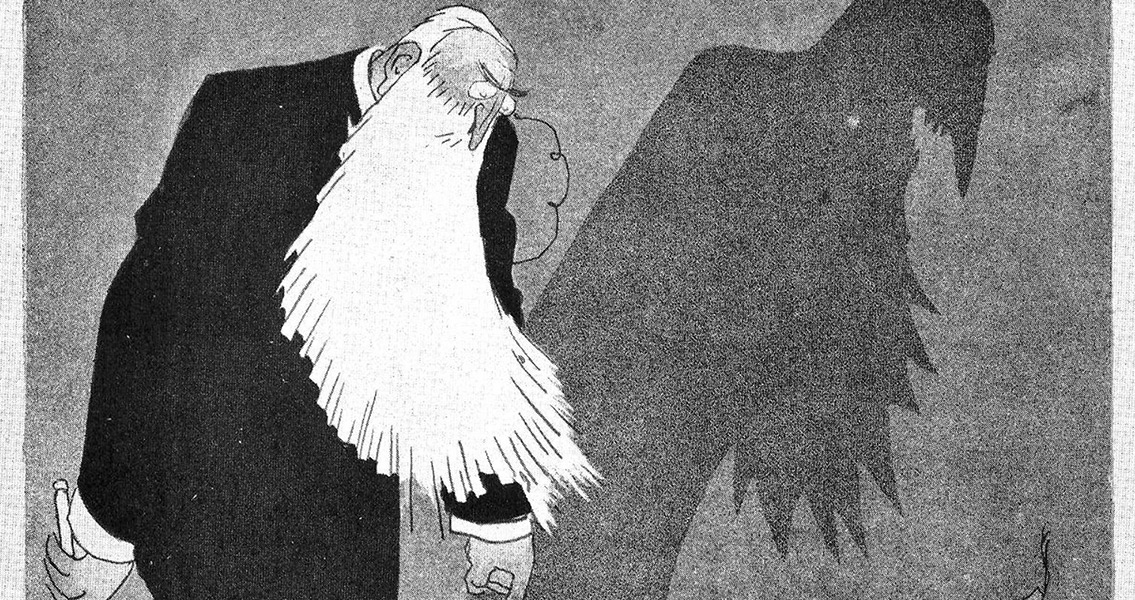<![CDATA[On 29th June, 1903, the British government lodged a protest against abuses taking place in the Congo Free State run by the Belgian King Leopold II. It came during a time of growing public awareness of the atrocities which were taking place in the region under the cloak of European imperialism Towards the end of the nineteenth century the imperial powers of Europe began a race to expand into the still largely uncharted (by Europeans) continent of Africa. Driven by nationalism, imperial competition and the belief that Africa contained a wealth of untapped natural resources, the likes of France, Britain, Germany and Belgium sought to carve out territories in Africa for themselves. The Berlin Conference of 1884-1885 cemented the international claims to Africa and divided up the continent's territories for imperial exploitation. The Belgian king, Leopold II, was granted the area around the Congo River basin. Unusually for the time, the region did not become a Belgian colony, but instead remained under king's personal rule via International Congo Society. From 1888 the region became immensely profitable. John Boyd Dunlop's patenting of the pneumatic tyre dramatically increased global demand for rubber, a resource which along with ivory the Congo held an abundance of. The growth in rubber exports was dramatic. In 1892 the Congo Free State exported less than 250 tons of rubber, by 1897 it was exporting up to 1500 tons annually. Leopold took this new found wealth and spent it on elaborate public projects in Belgium in an attempt to improve the image of the country's royal family and its relationship with its subjects. Initially held up as an example of European involvement in Africa being profitable for both continents, horrific stories started to emerge from the Congo near the turn of the twentieth century. European travellers and visitors to the Congo Free State started to relay tales of brutal atrocities carried out on the indigenous Congolese population. Initially dismissed, the frequency of the stories eventually meant that the British media started to take an interest in events in the Congo Free State, and pressure grew for an investigation to be launched. The native Congolese people were offered no protection from exploitation under the Congo Free State run by Leopold II. European companies working in the Congo, all of which Leopold held a 50% share in, were able to exploit the region's resources and people; carrying out acts of robbery, murder and intimidation in order to gain labour and resources. Two thirds of the country, under orders from Leopold, were turned into private land upon which the local population were banned from selling goods to anyone other than the European occupiers. Workers were forced to meet production quotas at a price fixed by the state. A police force, made up of Europeans and local Congolese people, punished failure to meet quotas with death, torture or maiming. As a sickening means to prove ammunition was not being wasted and disciplinary actions were being performed, the officers of Leopold's Force Publique were encouraged to amputate and collect the hands of their victims. In 1903, the British consul to the Congo Free State, Roger Casement, received an encrypted telegram from the British government ordering him to investigate the alleged abuses. Embarking on a voyage up the Congo, the eventual publication of Casement's report on the horrors endured by the Congolese caused outrage in Britain. The revelations from Casement's report coincided with a growing realisation in Europe that the exploitation of Africa was far from the 'civilising' mission it had been made out to be. The Congo Free State had been established under the pretense of humanitarianism, a justification used by other countries in their attempts to exert imperial influence over Africa. Imperialism was backed with the argument that the European presence in Africa was fulfilling a philanthropic role rather than simply exploiting resources. As the publication of Joseph Conrad's 'Heart of Darkness' had pointed towards in 1899, by the turn of the last century this narrative of the relationship between European imperialism and Africa was finally starting to be questioned. It is important to observe that the atrocities carried out in the Congo Free State were far from isolated. Other acts of brutality in the colonies of other European nations took place across Africa under the influence of European imperialism. Nevertheless, the British protest against the atrocities in the Congo Free State highlights just how severe the treatment of native Congolese had been, and the slowly developing awareness of the crimes of imperialism. ]]>
Britain Protests Congo Atrocities
